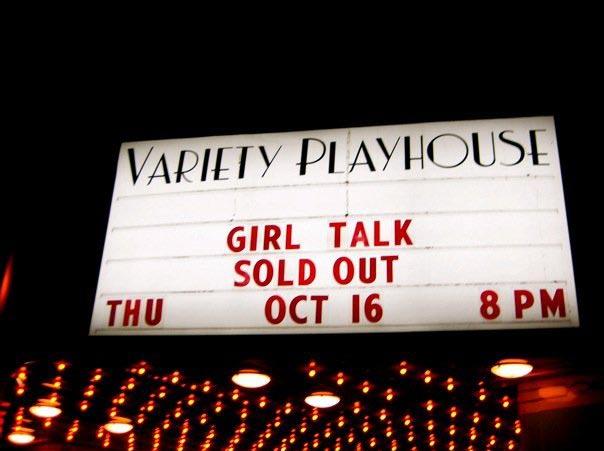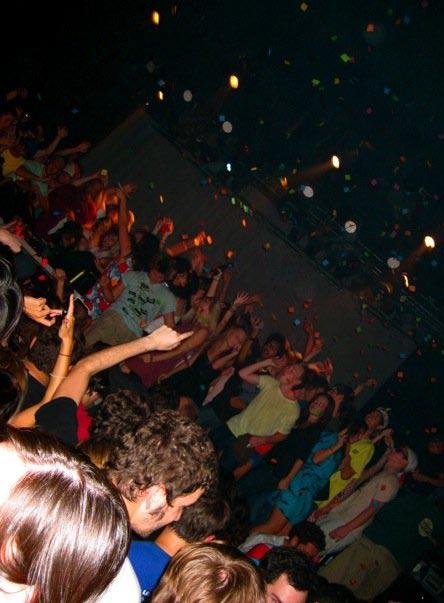
2 minute read
Let’s Talk Girl Talk
By Michal Flombaum
ON OCTOBER 16TH, I AND APPARENTLY THE REST OF EMORY, went to see Girl Talk perform at the Variety Playhouse. The small Little Five Points venue was filled to the brim with people, many of whom I recognized from my FAME group, classes I’ve been in, and from just walking around on campus. This was not my first time at the Variety Playhouse, nor was it my first Girl Talk show, but this was the first time I had seen so many Emory students at a concert.
While dancing and wondering why so many Emory students were at the concert, I came to two conclusions: either Girl Talk puts on the type of show where you’re simply more visible as an attendee, or Girl Talk is the lowest common denominator among Emory’s student body.

Emory prides itself on its diverse student body. We have large numbers of African American students, international students, students from the North, and students from the South. Likewise we have sorority and fraternity kids, media geeks, jocks, and vegans. This is not to say that any one of these labels defines a student at Emory, but in some ways, Emory’s multiple microcosms makes it seem more like a bad high school film than a “destination university.”
While I know there is more to the students at Emory than their extracurricular activities, I also know that Girl Talk, with his seemingly random mashups of indie rock, rap, and pop tunes, is not the typical artist who would appeal to large Emory crowds. Recent SPC choices like OAR or Robert Randolph and the Family Band highlight this point. Even more MTVU-oriented band choices such as RJD2 or OK Go pose a safer sound than Girl Talk.
So what is it about Girl Talk? For me it was always the anthemic quality. The fact that I could recognize the beats and lyrics from other songs I listen to regularly, yet be surprised by the unique way they are put together. This dichotomy between the known and the unexpected is what makes me sing and dance along more than I would to most artists or DJs. I suppose the same is true for other Emory students. Hearing their favorite songs mixed with an old rap beat and an indie artist they may not have heard of yet may get them more excited than another up-and-coming independent artist or DJ.
Either way, it seemed that everyone was there, and everyone seemed to have the same energy. It was like the DUC freshman year. We shouted along to dirty lyrics and clapped when Girl Talk, Gregg Gillis, told us to clap. As the intensity of the crowd grew overall, I noticed more and more individuals from Emory. The stage, the front row, and the immediate area around Greg Gillis consisted solely of Emory students; I could recognize each one, even if I didn’t know his or her name. Sometimes we would acknowledge each other with a “Hey! (insert name)!” But as most of the people were just “that kid from Marketing” to me, a smile and a wave, sometimes even a quick dance, sufficed. It was the closest I’ve felt to “that kid,” and while it wasn’t an Emory event, it still felt good to recognize people.
While I don’t expect to see such a mix of Emory students at a show again, I’m still glad about the shared, albeit sweaty, experience.








